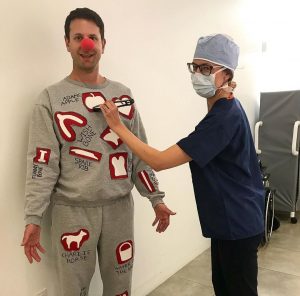Students concerned with Ebola in NY
October 29, 2014
The nation is currently overwhelmed with news about the Ebola virus as the disease starts to spread in certain regions, especially following the notice of a confirmed case in New York City.
The main issue, however, is that the majority of citizens are uninformed and undereducated about the true nature of the virus. The many rumors circulating regarding the virus particularly impacts students.
“I think the government might not have total control of this virus, although they keep saying otherwise, and if they don’t control it now it could turn into an epidemic,” sophomore Bryan Giron said.
The Ebola virus has caused plenty of concern across the nation. However, there have only been four reported cases of Ebola in the U.S.
New York and New Jersey have responded by enacting 21-day quarantine policies for anyone who has come in contact with Ebola patients in West Africa. New York and New Jersey governors Andrew Cuomo and Chris Christie are facing backlash from President Barack Obama’s administration for the orders and have proposed that they follow the new federal policy that introduces a 21-day monitoring process instead of quarantine.
“I feel that people need to educate themselves more about the virus and actually try to understand how it is transmitted because people make false accusations as to whether one might have the virus or not,” sophomore Christine Lachapel said.
Ebola is an infectious and usually fatal virus. It is spread through transmission of bodily fluids or blood with someone who is infected, along with any direct contact with objects like needles or syringes that have been contaminated with the virus, according to the Centers for Disease Control (CDC).
Symptoms include fever, severe headache, muscle pain, weakness, diarrhea, vomiting, abdominal pain and unexplained hemorrhage.
According to the CDC, symptoms may appear anywhere from two to 21 days after exposure to Ebola, but the average is eight to 10 days.
There is no cure for the virus although a lot of effort has been put forward towards creating one. Many scientists and doctors have also have begun searching for a vaccine.
The patients who tested positive for the virus in the U.S. all had been working with or near others that had contracted the virus. Unless students are traveling to places within West Africa, the risk for contracting the disease is low.
Students can still take certain precautions to avoid contracting the virus, especially now that it has come closer to campus.
One important thing to know is that it cannot be contracted through the air, water or food. There is a simple preventative measure to avoid contracting the virus: practice good hygiene.
Good hygiene includes something as simple as washing your hands with soap and water. Avoid contact with bodily fluids and blood that could be from someone who has Ebola. Make sure to take care of open wounds and do not be near another person who has Ebola while a wound is open.
It is a lot more difficult to contract the virus as a person who is not traveling and is not in the medical field having to deal with the virus head on.
In order to keep up to date with the state of the virus, follow any reports or mandates issued by the CDC and the government.


